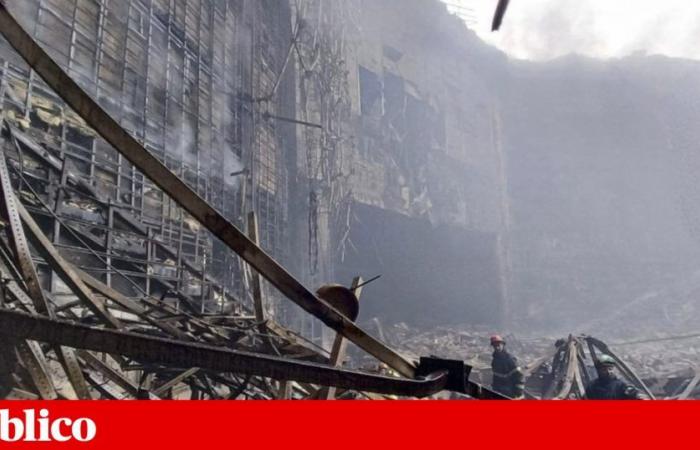On Friday night, a group of armed men entered a concert hall in Moscow and shot hundreds of people, in the most violent terrorist attack in recent decades in the Russian capital. Daesh, however, claimed responsibility for the attack, which was carried out by one of its regional branches: Daesh-Khorasan.
In recent years, since the withdrawal of US troops from Afghanistan in 2021, the Khorasan group has shown its strength and violence beyond the Afghan and Pakistani borders. It is, at the moment, the most capable faction of Daesh. In the last year alone, they were responsible for around 50 attacks, which caused more than 650 deaths and injuries. On average, 14 victims per attack — more than any other regional branch of the self-proclaimed Islamic State.
The birthplace: Afghanistan
It is possible to see in Syria the first signs of life of what would become Daesh-K, where Pakistani and Afghan jihadists fought against the regime of Bashar al-Assad. Months after the creation of the Daesh “caliphate” in Syria and Iraq in 2014, many of these volunteer fighters returned to Afghanistan to found their own “province”.
Whether they were former members of al-Qaeda, the Taliban or other Islamist militias, what united them was an even more fundamentalist interpretation of the Quran and the desire to toughen the application of Islamic law, with the purpose of expanding territory and faith. .
In early 2015, Daesh recognized the creation of wilayah (province) of Khorasan — the former name given to the region that covers parts of the current territory of Afghanistan, Pakistan, Iran and Central Asia —, led by emir Hafiz Saeed Khan, a Pakistani dissident from the Taliban. The founder of Daesh-K would end up being assassinated by US troops a few months later, in 2016.
The Islamists’ ultimate objective will be the creation of a caliphate in Central and South Asia, governed by sharia, which will welcome Muslims from all over the world. The group rejects modern borders, evoking the glory of ancient Muslim empires.
In recent years, Daesh has strengthened its support for wilayah of Khorasan, as it loses power in Iraq and Syria, and in order to reaffirm itself as a global jihadist structure (although it is not known whether the perpetrators of the attack in Moscow acted on orders from Daesh’s central command).
Although it has registered a decrease in the number of members since 2018, Daesh-K continues to recruit former Taliban dissatisfied with the regime, defectors or members of other jihadist movements in the region. It will currently have less than 2000 men, and it is not clear who leads them.
New targets, beyond the province
On August 26, 2021, days after the Taliban took power, Khorasan’s men attacked Kabul airport, killing 13 US soldiers and around 170 civilians. Despite being both Islamists, Daesh-K survives in Afghanistan in confrontation with the Taliban, mainly due to territorial disputes and disagreements regarding the application of the sharia, Daesh being more radical.
The strictest interpretation of sharia It can mean, for example, that listening to music is prohibited, but also that criminal acts can be punished with corporal punishment, such as amputations, or executions in a public square.
It is through the repression and constraints caused by the new Afghan regime that members of Daesh “seek imposition through more violent operations”. “They need to react to demonstrate that they continue to have this capacity”, explains Felipe Pathé Duarte, professor and researcher at Nova School of Law, and author of the book Global Jihadism: from Words to Deeds.
In its last major attack before Moscow, last January, Daesh-K killed 84 people who were taking part in a tribute to General Qassem Soleimani, in Iran. Earlier this month, it had planned an attack on a synagogue in Moscow, stopped by Russian Federal Security Service (FSB).
The “province” of the self-proclaimed Islamic State accuses the Kremlin of having Muslim blood on its hands, due to military interventions in Afghanistan, Chechnya and Syria, but the enmity is historical.
“The enmity towards Russia and what Russia represents, be it the former tsar, the Soviet Union or the anti-jihad Putin, is very strong. So [este ataque] It’s not surprising at all”, adds Felipe Pathé Duarte.
According to General Michael E. Kurilla of the United States Central Command, Daesh-K “has the ability and willingness to attack US and Western interests” and can do so in a few months “with little or no warning.” .
“There are essentially two groups that represent global Jihad, which remains very active: on the one hand, al-Qaeda; on the other, Daesh”, which compete with each other, recalls Felipe Pathé Duarte. Even though it is a small faction, Daesh-Khorasan is today one of the most violent in the jihadist world.






